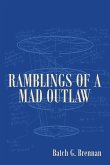Nearly 40 years after the concept of finite deterrence was popularized by the Johnson administration, nuclear Mutual Assured Destruction (MAD) thinking appears to be in decline. The United States has rejected the notion that threatening population centers with nuclear attacks is a legitimate way to assure deterrence. Most recently, it withdrew from the Anti-Ballistic Missile Treaty, an agreement based on MAD. American opposition to MAD also is reflected in the Bush administration's desire to develop smaller, more accurate nuclear weapons that would reduce the number of innocent civilians killed in a nuclear strike. Still, MAD is influential in a number of ways. First, other countries, like China, have not abandoned the idea that holding their adversaries' cities at risk is necessary to assure their own strategic security. Nor have U.S. and allied security officials and experts fully abandoned the idea.
Hinweis: Dieser Artikel kann nur an eine deutsche Lieferadresse ausgeliefert werden.
Hinweis: Dieser Artikel kann nur an eine deutsche Lieferadresse ausgeliefert werden.








